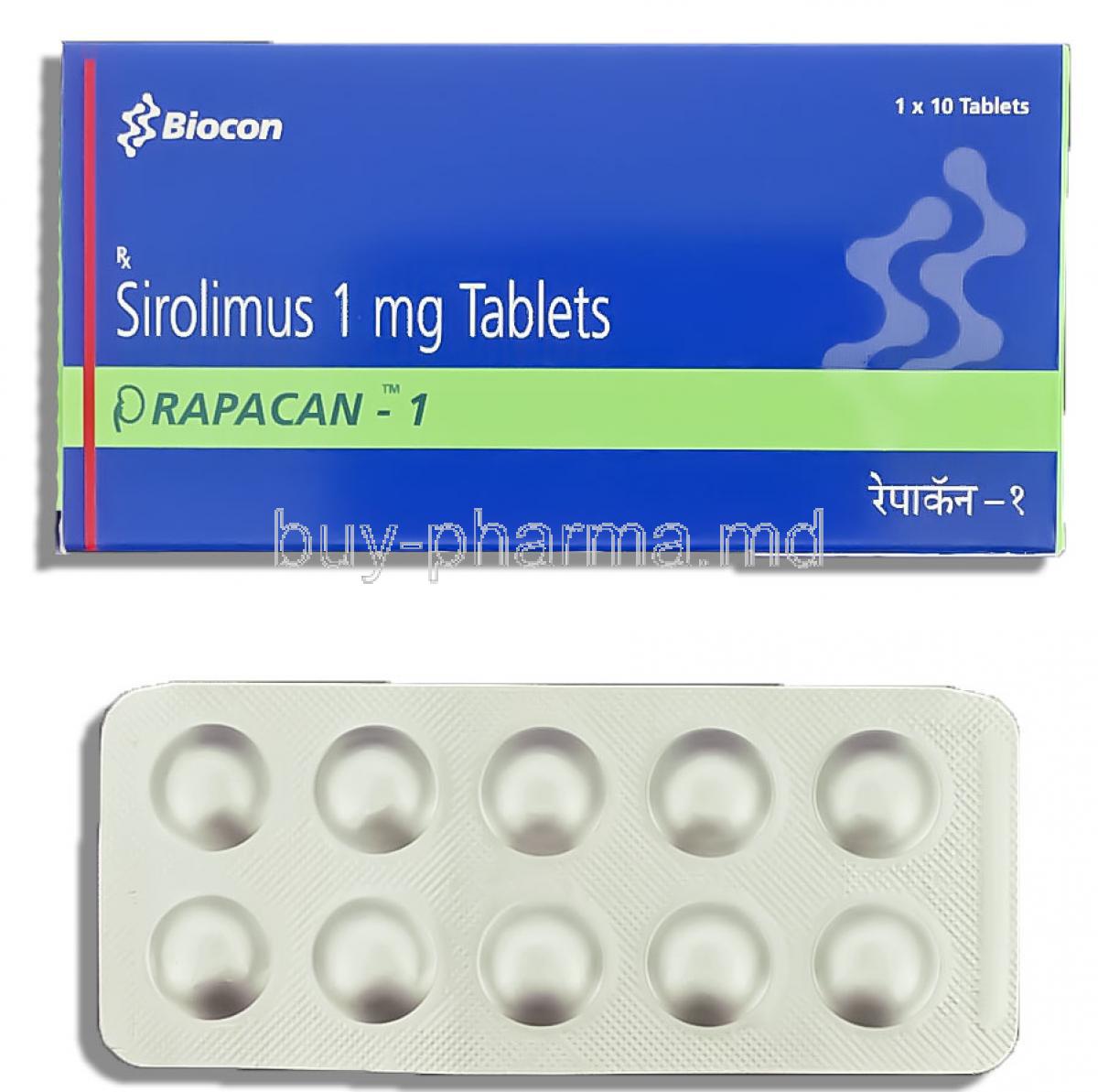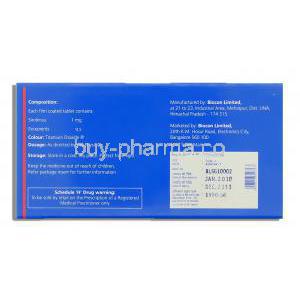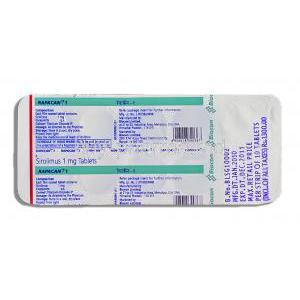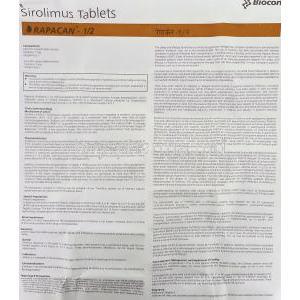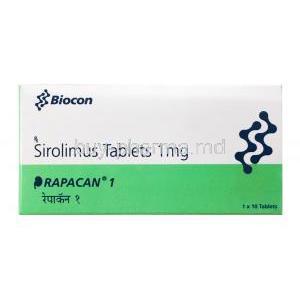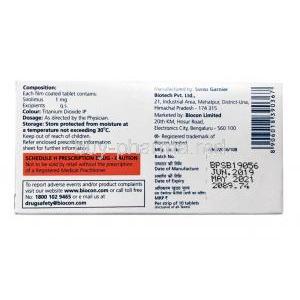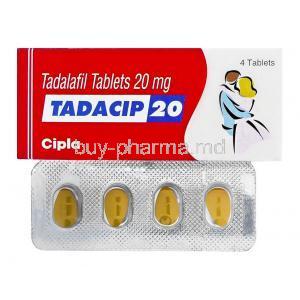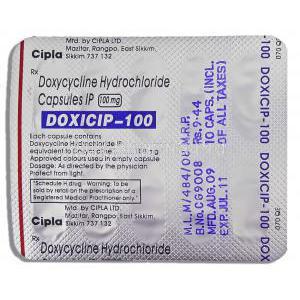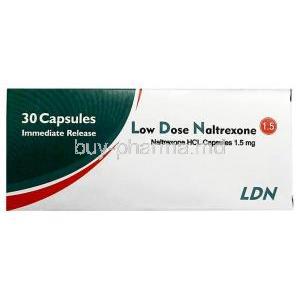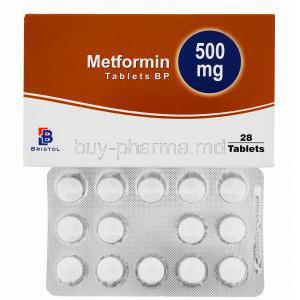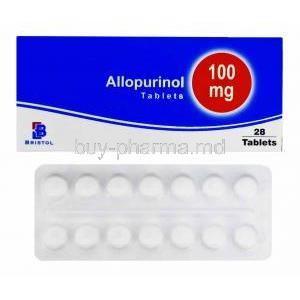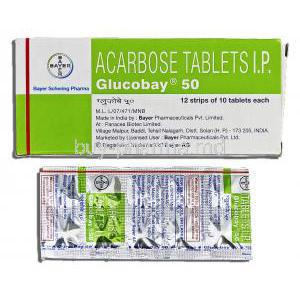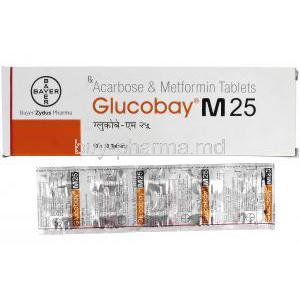Rapamycin (Sirolimus)
- Introduction to Rapamycin (Sirolimus)
- Understanding How Rapamycin Works
- Approved Uses of Rapamycin
- Off-label Uses of Rapamycin
- Composition and Formulation of Rapamycin
- Dosage and Administration of Rapamycin
- Rapamycin Interactions: Drugs and Food
- Warnings and Contraindications of Rapamycin
- Side Effects of Rapamycin: What to Expect
- Administration Precautions for Specific Populations
- A. Administration to elderly: Dosage, side effects, and monitoring
- B. Administration to pregnant women and nursing mothers: Risks and alternatives
- C. Administration to children: Dosage, side effects, and monitoring
- A. Symptoms of Rapamycin overdose
- B. Immediate steps and treatment protocols for overdose
- C. Long-term consequences of overdose
- A. Optimal storage conditions for potency preservation
- B. Safe handling to prevent contamination or accidental exposure
- A. Monitoring patient response and adjusting treatment
- B. Recognizing and managing treatment complications
- C. Careful administration and compliance assurance
Introduction to Rapamycin (Sirolimus)
Throughout the passage of numerous years, Rapamycin (Also called Sirolimus) has emerged as an invaluable drug used extensively for tackling diverse medical conditions. Its beginnings trace back to 1972 when diligent researchers from the esteemed University of British Columbia stumbled upon this remarkable substance while thoroughly analyzing soil samples collected diligently on Easter Island. Originating initially as an antifungal agent, its hidden potential as an immunosuppressive aid was later unearthed – establishing itself as a crucial component in preventing rejection during organ transplants. From a structural standpoint, rapamycin shares striking similarities with tacrolimus and cyclosporine, categorizing it under macrolide antibiotics with a molecular weight of roughly 914.18 g/mol. They are endowed with oral and intravenous options for administration purposes. Rapamycin has proven an indispensable therapeutic tool across various afflictions encompassing cancer, autoimmune disorders, and cardiovascular ailments. Furthermore, its extensive utilization as an immunosuppressant for organ transplant procedures ensures successful integration while mitigating the risk of rejection.
Understanding How Rapamycin Works
Rapamycin demonstrates its efficacy by inhibiting the activity of mTOR (mechanistic target of rapamycin). This serine/threonine kinase protein is crucial in governing cell growth and proliferation. Consequently, when Rapamycin impedes mTOR, cancer cells experience reduced or halted growth. Moreover, Rapamycin contributes significantly to immunosuppression as it restricts the activation and reproduction of T cells involved in our immune response chain, as such. This drug serves as an effective means to suppress our immune system during organ transplants. Furthermore, Rapamycin exudes anti-inflammatory qualities that render it potentially valuable when addressing autoimmune disorders such as rheumatoid arthritis or lupus. Rapamycin exhibits impressive adaptability as a therapeutic agent against various diseases within its long-standing usage history. Though divergent in its modus operandi within the human body. We possess a comprehensive comprehension of its mechanics. We make it an invaluable weapon in our ongoing battle against cancer and other afflictions.
Approved Uses of Rapamycin
Rapamycin is an immunosuppressant drug that is used to prevent organ transplant rejection. It is often administered alongside other immunosuppressive drugs, such as cyclosporine and tacrolimus. The Food and Drug Administration (FDA) has also approved using rapamycin for treating lymphangioleiomyomatosis (LAM), a rare lung disease primarily affecting women.
Moreover, rapamycin plays a crucial role in preventing restenosis, which is the process of blood vessels narrowing again after undergoing angioplasty or stenting. To address this issue, rapamycin has been incorporated into drug-eluting stents.
Here are the references for the content:
2. HIGHLIGHTS OF PRESCRIBING INFORMATION Lymphangioleiomyomatosis Patients
Off-label Uses of Rapamycin
Rapamycin has shown potential as an anti-cancer treatment. Ongoing research is exploring its use for different types of cancer, including breast cancer, lung cancer, and renal cell carcinoma. Promising evidence suggests that it may have applications in neurology and mental health disorders. Specifically, studies indicate that rapamycin could be beneficial in treating Alzheimer's disease, Parkinson's disease, and autism. Additionally, this versatile drug has shown promise in aging and longevity research by extending lifespan in various animal models. As a result, scientists are investigating its potential as a treatment for age-related diseases like Alzheimer's and Parkinson's.
Here are the references for the content:
1. Effect of rapamycin on aging and age-related diseases—past and future
2. Mammalian/mechanistic target of rapamycin (mTOR) complexes in neurodegeneration
3. PI3K/AKT Signal Pathway: A Target of Natural Products in Alzheimer’s Disease and Parkinson’s Disease
Composition and Formulation of Rapamycin
Rapamycin is a macrocyclic lactone compound. It shares a structural similarity with tacrolimus and cyclosporine. This macrolide antibiotic has a molecular weight of 914.18 g/mol. The active ingredient in rapamycin is sirolimus, which possesses immunosuppressive solid properties alongside sirolimus. Rapamycin contains inactive ingredients such as lactose monohydrate, hypromellose, magnesium stearate, and titanium dioxide. There are two available formulations of rapamycin – oral and intravenous. The oral formulation comes in the form of tablets or an oral solution. As for the intravenous formulation, it is provided as a concentrate that requires dilution before administration. The effectiveness and absorption of rapamycin can be affected by its formulation, for instance. The oral solution has higher bioavailability compared to the tablet formulation. Additionally, the intravenous formulation boasts the highest bioavailability among all available forms.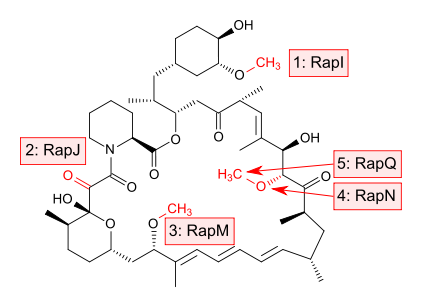
Dosage and Administration of Rapamycin
The recommended dosage of rapamycin can differ based on the indication and a patient's weight. For instance, in renal transplantation cases, a standard dosage would involve an initial intake of 6 mg on day 1, followed by a daily dose of 2 mg afterward. Patients with hepatic impairment or those using medications affecting rapamycin metabolism may necessitate adjustments to their prescribed dosage regarding its administration method. Rapamycin can be taken orally or intravenously, as determined by healthcare professionals. Furthermore, specific indications may dictate variations in timing for its intake; for example, organ transplant patients typically receive immediate post-transplantation doses. Precise adherence to your doctor's prescription instructions is essential when using this medication. To optimize absorption into the body. It is vital to consume food when taking rapamycin; additionally, maintaining regularity by taking it consistently each day promotes stable blood levels.t
Rapamycin Interactions: Drugs and Food
Known drug-drug interactions and their consequences
It is essential to be aware that rapamycin has the potential to interact with several other drugs, which can lead to significant side effects. Some examples of drugs that have been found to interact with rapamycin include CYP3A4 inhibitors like ketoconazole, itraconazole, and clarithromycin; CYP3A4 inducers such as rifampin, carbamazepine, and phenytoin; calcium channel blockers like diltiazem and verapamil; ACE inhibitors such as enalapril and lisinopril; ARBs like losartan and valsartan; antibiotics like erythromycin and azithromycin; antifungal agents like fluconazole and voriconazole; and immunosuppressive agents such as cyclosporine and tacrolimus. It is essential to note that when rapamycin is used concomitantly with any of these drugs. There is an increased risk of experiencing severe side effects such as kidney, liver, and lung damage. Therefore. Caution should be exercised when considering the simultaneous use of rapamycin with these medications.
Food and lifestyle interactions
It is recommended to accompany rapamycin intake with a meal to optimize absorption. One should exercise caution and avoid consuming grapefruit juice while using rapamycin since this can result in elevated medication concentrations in the blood.
Laboratory tests potentially affected by Rapamycin
Rapamycin has the potential to impact the outcomes of specific laboratory tests. One example is its ability to elevate serum creatinine levels, thus potentially interfering with tests that evaluate kidney function.
Warnings and Contraindications of Rapamycin
Contraindications due to medical conditions
Patients with hypersensitivity to sirolimus or any inactive ingredients in the formulation should not use Rapamycin. It is essential for patients with liver, lung, kidney, blood disorders, high cholesterol or triglycerides, diabetes, infections, hypertension, cancer, or who have undergone organ transplants to exercise caution when using this medication.
Severe side effects and hypersensitivity
The use of rapamycin may lead to significant adverse effects, including kidney, liver, and lung damage. It can also result in blood disorders, infections, and hypersensitivity reactions such as anaphylaxis and angioedema. Additionally, the possibility of malignancies like lymphoma and skin cancer should be considered.
Necessary precautions during treatment
It is paramount that individuals undergoing treatment with rapamycin are closely observed for indications of these adverse reactions. Periodic blood examinations may prove essential in appraising kidney functionality and liver functionality. And blood cell counts accurately. Additionally, it is essential for patients utilizing rapamycin medication to exercise prudence when exposed to sunlight and UV light due to a consequent augmented vulnerability towards skin cancer threats.
Side Effects of Rapamycin: What to Expect
Rapamycin's significance extends further into anti-aging therapies and treatments for age-associated disorders, having played a vital role in deterring organ transplant rejection and combating particular malignancies over several decades. Consequently, it is imperative to recognize that alongside these benefits come certain drawbacks inherent to drug use. A compilation follows detailing some frequently encountered side effects linked with rapamycin utilization:

A. Common side effects: Mild to moderate
Suppose you are experiencing any of these side effects. It is advised to have a conversation with your doctor. They possess the knowledge and expertise to potentially modify your dosage or suggest alternative treatments to assist you in managing these symptoms.
B. Less common, but serious side effects
In certain instances, using rapamycin can lead to more severe side effects. Some of these potential effects are elevated blood pressure, increased cholesterol levels, and a heightened risk of developing infections. Susceptibility to bleeding or bruising. Difficulties in breathing or experiencing shortness of breath, chest pain or discomfort, fever, chills, seizures, convulsions, and alterations in mental health such as depression or anxiety. If any of these symptoms are experienced, It is advisable to seek medical attention promptly.
C. Strategies to manage and mitigate side effects
If you are experiencing side effects from taking rapamycin, it is advisable to consider various strategies to manage and alleviate these symptoms effectively. One such strategy would be to consult with your doctor regarding potential adjustments to your dosage or the possibility of switching to an alternative medication. Additionally, maintaining a balanced and nutritious diet as well as engaging in regular exercise can significantly assist in managing symptoms such as fatigue and joint pain. It is also essential to refrain from consuming alcohol and smoking as these habits can potentially exacerbate side effects like high blood pressure and cholesterol levels. To reduce the risk of contracting infections. It is important to consistently practice good hygiene by frequently washing your hands and avoiding contact with individuals who are ill. Furthermore, prioritizing self-care by ensuring adequate sleep and effectively managing stress levels can also contribute positively towards mitigating side effects.
Administration Precautions for Specific Populations
A. Administration to elderly: Dosage, side effects, and monitoring
Rapamycin can be safely given to elderly individuals at reduced doses compared to younger patients. Nevertheless, older patients may be more vulnerable to specific adverse reactions like hypertension and hypercholesterolemia. In case you are an elderly patient, prescribed rapamycin. Your physician will closely observe your progress.
B. Administration to pregnant women and nursing mothers: Risks and alternatives
Pregnant women or nursing mothers should avoid taking Rapamycin due to its potential harm to the developing fetus or nursing infant. It is advisable to consult with your doctor regarding alternative treatments if you are in either of these situations.
C. Administration to children: Dosage, side effects, and monitoring
Rapamycin can be safely given to children at lower doses compared to adults. However, children may have a higher risk of experiencing side effects like high blood pressure and cholesterol if your child is prescribed rapamycin. Their doctor will closely monitor them. XI. Detecting and Managing Rapamycin Overdose Rapamycin is a potent medication for treating conditions like cancer and autoimmune disorders. But similar to other drugs, taking an excessive amount of rapamycin can be dangerous. Here are the symptoms that indicate a rapamycin overdose:
A. Symptoms of Rapamycin overdose
Suppose you encounter any of these symptoms following rapamycin consumption. It is crucial to seek medical assistance promptly. These symptoms may include difficulty breathing or shortness of breath, irregular heartbeat or heart palpitations, seizures or convulsions, confusion or disorientation, loss of consciousness or coma, low blood pressure or hypotension, high blood sugar or hyperglycemia changes in vision or hearing, nausea, and vomiting, diarrhea, fatigue or weakness, headache or dizziness. Taking immediate action is vital for your well-being.
B. Immediate steps and treatment protocols for overdose
In case of a suspected rapamycin overdose in yourself or someone else. Taking prompt action is essential. First and foremost. Dialing 911 or your local emergency services should be your immediate response. If the person affected by this overdose is unconscious, it becomes critical for you to assess their breathing and pulse; if required performing CPR must be prioritized without delay. For conscious individuals experiencing an overdose episode, maintaining a calm and soothing atmosphere while waiting for medical help can benefit their well-being during this challenging time. Additionally, furnishing as much precise information as possible about the drugs' specifics - dosage taken and time of ingestion - will greatly aid medical professionals in customizing treatment protocols based on symptom severity related to rapamycin overdose occurrence. Treatment options following a rapamycin overdose incident will vary depending upon symptom intensity, and potential interventions may include gastric lavage (stomach pumping) to eliminate remaining drug remnants from the stomach. Furthermore, activated charcoal can be administered to absorb any lingering drug in the stomach effectively. Intravenous fluids might also be administered to facilitate flushing out the drug from the system. To mitigate specific symptoms such as seizures or low blood pressure, medications could be utilized alongside other appropriate treatments under professional healthcare supervision.
C. Long-term consequences of overdose
The repercussions of surpassing the recommended rapamycin dosage can result in severe long-term implications such as kidney or liver dysfunction/failure. Respiratory failure or impaired lung function, neurological impairment, or brain injury. Heart failure or cardiovascular complications and pancreatic harm/pancreatitis. In case of rapamycin overdose, Seeking medical attention to mitigate potential long-term consequences immediately is imperative. XII. Storage and Handling Precautions for Rapamycin Rapamycin is an influential medication that demands cautious storage and handling procedures to maintain its effectiveness and safety. The following advice is provided for proper storage and handling of rapamycin:
A. Optimal storage conditions for potency preservation
Please store rapamycin in a dry place at room temperature (68 77°F), away from light and moisture. It is important not to keep rapamycin in the bathroom or other damp areas; ensure that rapamycin is out of the reach of children and pets. Furthermore, emphasize the importance of not using rapamycin after the expiration date indicated on the label.
B. Safe handling to prevent contamination or accidental exposure
As a safety measure against potential skin contact, it is strongly recommended that healthcare providers wear gloves while handling rapamycin tablets. In case there is accidental exposure to rapamycin. It becomes imperative to cleanse the affected area thoroughly using soap and water without delay. Seeking immediate medical assistance becomes crucial if unintentional ingestion of rapamycin occurs. Healthcare providers bear significant responsibility in ensuring this medication's secure and efficient utilization; therefore, adherence to these essential precautions during prescription and administration is of utmost importance.
A. Monitoring patient response and adjusting treatment
Patients should be closely monitored for any signs of adverse reactions or complications. It is essential to adjust the dosage of rapamycin as necessary. They are taking into account the patient's response and tolerance. If rapamycin is not well tolerated or if adverse reactions occur, it may be prudent to consider alternative treatments.
B. Recognizing and managing treatment complications
It is essential to be mindful of the potential complications that may arise from rapamycin treatment, including conditions such as high blood pressure, high cholesterol, and an increased risk of infection. It is advised to closely observe patients for any signs of these complications and take necessary measures to adequately address them. In case the complications become severe or prove to be unmanageable. It should be considered whether discontinuing the rapamycin treatment is appropriate.
C. Careful administration and compliance assurance
To achieve optimal results,, rapamycin administration must strictly adhere to the prescribed dosage and schedule. Moreover, it is crucial for healthcare providers to ensure a thorough understanding among patients about proper intake methods for rapamycin and maintain compliance with the assigned treatment regimen. Crucial vigilance must be exercised in closely monitoring patients for potential indications of noncompliance or improper use of rapamycin. If such irregularities are observed appropriate measures must then be put in place - whether it involves educating the patient regarding proper usage techniques or referring them to a specialist - in order to address noncompliance or misuse effectively by meticulously implementing these precautions. Healthcare providers play a pivotal role in enabling patients to reap the maximum benefits of rapamycin treatment while minimizing the risks associated with adverse reactions and complications.
Rapamycin (Sirolimus) FAQ
- What is Rapamycin?
- How does Rapamycin work?
- What are the side effects of Rapamycin?
- Can Rapamycin be used for dogs?
- Where can Rapamycin be purchased?
- How much does Rapamycin cost?
- How can I get Rapamycin?
- What is the typical dosage for Rapamycin?
- Is Rapamycin used for autophagy?
- Is Rapamycin used for cancer treatment?
- Is Rapamycin naturally derived?
- What is the dosing of Rapamycin for longevity?
- Can Rapamycin be used for aging?
- What is the dosage of Rapamycin for anti-aging?
- Where can I buy Rapamycin supplement?
- Is Rapamycin for sale?
- Can Rapamycin be used for longevity?
- What is Rapamycin used for?
- What is the anti-aging dose for Rapamycin?
- What are the benefits of Rapamycin?
- What is Rapamycin drug?
- Are there natural alternatives to Rapamycin?
- What is the structure of Rapamycin?
- What is Rapamycin's target?
- Are there natural sources of Rapamycin?
- What's the connection between Rapamycin and Easter Island?
- Is Rapamycin an mTOR inhibitor?
- Is Rapamycin used for Alzheimer's disease?
- Is Rapamycin found in food?
- Is there a generic form of Rapamycin?
- Does Rapamycin aid in weight loss?
- Where can I buy Rapamycin cream?
- What is the connection between Rapamycin and Metformin?
- What is the molecular weight of Rapamycin?
- Where can I find more information about Rapamycin?
- What is the status of Rapamycin clinical trials?
- What is the longevity dosage for Rapamycin?
- What is Rapamycin Sigma?
- Can Rapamycin be used for anti-aging?
- Can I purchase Rapamycin online?
- What is the price of Rapamycin?
- What are the uses of Rapamycin?
- What are some brands of Rapamycin cream?
- Is Rapamycin available over the counter?
- What does Rapamycin do?
- Can Rapamycin be used for autism?
- How does Rapamycin interact with mTOR?
- What is the mechanism of action of Rapamycin?
- What is the half-life of Rapamycin?
- How was Rapamycin discovered?
- How does Rapamycin compare to Metformin?
- Does Rapamycin extend life?
- What is the solubility of Rapamycin?
- Can I buy Rapamycin on Amazon?
- Who manufactures Rapamycin?
- Can I purchase Rapamycin?
- Can Rapamycin be used in cats?
- How does Rapamycin work?
- What is the Rapamycin pathway?
- Can Rapamycin be used for autoimmune diseases?
- What are some analogs of Rapamycin?
- What is the relationship between Rapamycin and FKBP12?
- What is the cost of generic Rapamycin?
- Can Rapamycin be used in prostate cancer?
- What is Rapamycin topical cream?
- Has David Sinclair mentioned Rapamycin?
- What is Rapamycin therapy?
- Are there human trials involving Rapamycin?
- Can Rapamycin be used to treat depression?
- How can I get Rapamycin?
- Is Rapamycin available over the counter?
- What is Rapamycin made from?
- How does Rapamycin inhibit mTOR?
- What is the difference between Rapamycin and Sirolimus?
- How does Rapamycin interact with Metformin?
- What is the mechanism of action of Rapamycin?
- Are there Rapamycin pills?
- What is Rapamycin treatment?
- Can Rapamycin promote hair growth?
- What is the history of Rapamycin?
- Are there any foods rich in Rapamycin?
- What is Radiolab's episode on Rapamycin?
- How does Rapamycin cause immunosuppression?
- Is Rapamycin an antibiotic?
- What is the Dog Aging Project's use of Rapamycin?
- What is the definition of Rapamycin?
- What is the brand name of Rapamycin?
- Can Rapamycin be used for Multiple Sclerosis?
- Is Rapamycin available in powder form?
- Can Rapamycin be used for periodontal disease?
- What is the relationship between Rapamycin and aging?
- Can Rapamycin be used for psoriasis?
- Can Rapamycin be used for Lupus?
- Can Rapamycin be used for cancer?
- How can I order Rapamycin?
- Can Rapamycin be used for dogs with cancer?
- Can Rapamycin be used for diabetes?
- Where can I buy Rapamycin for dogs?
- Can I buy Rapamycin?
- Is Rapamycin available in India?
- What is Rapamycin SDS?
- Can Rapamycin influence stem cells?
- Can Rapamycin be used for bodybuilding?
- Is Rapamycin available in stock?
- What are the pharmacokinetics of Rapamycin?
- Does Rapamycin affect yeast?
- What is the relationship between Rapamycin and leucine?
- How does Rapamycin cause immunosuppression?
- Can Rapamycin be used for kidney disease?
- What is the formulation of Rapamycin?
- Can Rapamycin be used for acne?
- Can Rapamycin be used for Sarcoidosis?
- Can Rapamycin be used for Cystic Fibrosis?
- Can Rapamycin be used for Parkinson's disease?
- What is the bioavailability of Rapamycin?
- Does Rapamycin affect blood pressure?
- Does Rapamycin aid in wound healing?
- Can Rapamycin be used for Rosacea?
- How does Rapamycin affect endothelial cells?
- Is there an oral form of Rapamycin?
- Can Rapamycin be used for atopy?
- Can Rapamycin be used in vitro?
- What is the dosage of Rapamycin for dogs?
- Does Rapamycin affect plant growth?
- How does Rapamycin affect mitochondria?
- Is Rapamycin FDA approved?
- Can Rapamycin be used for skin conditions?
- Can Rapamycin be mixed with alcohol?
- Can Rapamycin be used for Type 2 Diabetes?
- Can Rapamycin be used for mice?
- Can Rapamycin be used for corneal transplants?
- Does Rapamycin affect fertility?
- Can Rapamycin be used for mice longevity?
- Does Rapamycin cross the blood-brain barrier?
- Can Rapamycin be used for fatty liver disease?
- Does Rapamycin induce cellular senescence?
- What is the shelf life of Rapamycin?
- What is the label for Rapamycin?
- Are there food interactions with Rapamycin?
- What is the mode of action of Rapamycin?
- Is Rapamycin anti-fungal?
- What is the veterinary use of Rapamycin?
- Can Rapamycin be used for Huntington's disease?
- Can Rapamycin be used for heart disease?
- What are Rapamycin rapalogues?
- Can Rapamycin be used during pregnancy?
- How does Rapamycin relate to caloric restriction?
- How does Rapamycin affect memory?
- Can Rapamycin be used for brain tumors?
- How does Rapamycin affect stem cells?
- Can Rapamycin be used for kidney transplants?
- Can Rapamycin be used for epilepsy?
- What are the interactions of Rapamycin?
- Can Rapamycin be used for sarcoidosis?
- What causes Rapamycin resistance?
- Can Rapamycin be used for diabetes?
- Can Rapamycin be used for psoriasis?
- What is the package insert for Rapamycin?
- Can Rapamycin promote beard growth?
- Does Rapamycin cause DNA damage?
- Rapamycin in cancer therapy?
- Rapamycin and autophagy?
- Rapamycin and neurodegeneration?
- Rapamycin for neurodegeneration?
- Rapamycin safety?
- Rapamycin mTOR pathway?
- Rapamycin malaria?
- Rapamycin for lupus?
- Rapamycin for Alzheimer's?
- Rapamycin kidney?
- Rapamycin for autoimmune diseases?
- Rapamycin and Covid?
- Rapamycin yeast infection?
- Rapamycin clinical trials cancer?
- Rapamycin and kidney disease?
- Rapamycin for kidney disease?
- Rapamycin drug interactions?
- Rapamycin wound care?
- Rapamycin and heart failure?
- Rapamycin and Parkinson's disease?
- Rapamycin veterinary?
- Rapamycin and liver disease?
- Rapamycin and fertility?
- Rapamycin injection?
- Rapamycin and cancer treatment?
- Rapamycin lysosome?
- Rapamycin for wound healing?
- Rapamycin for acne?
- Rapamycin for liver disease?
- Rapamycin for rosacea treatment?
- Rapamycin hair loss?
- Rapamycin rosacea?
- Rapamycin and kidney function?
- Rapamycin and liver function?
- Rapamycin cost for dogs?
- Rapamycin for epilepsy?
- Rapamycin tablets?
- Rapamycin sigma aldrich?
- Rapamycin chronic kidney disease?
- Rapamycin liver cancer?
- Rapamycin and lung disease?
- Rapamycin leucine zipper?
- Rapamycin and cystic fibrosis?
- Rapamycin transplant?
- Rapamycin for lung disease?
- Rapamycin pharmacodynamics?
- Rapamycin and wound healing?
- Rapamycin for Parkinson's?
- Rapamycin for heart disease?
- Rapamycin Huntington disease?
- Rapamycin for Huntington's disease?
- Rapamycin mechanism of action cancer?
- Rapamycin for brain tumors?
- Rapamycin eye drops?
- Rapamycin and mitochondrial function?
- Rapamycin for mitochondrial function?
- Rapamycin for Alzheimer's disease?
- Rapamycin for diabetes type 2?
- Rapamycin interactions with other drugs?
- Rapamycin in lupus?
- Rapamycin and fatty liver?
- Rapamycin and blood pressure?
- Rapamycin and psoriasis treatment?
- Rapamycin kidney failure?
- Rapamycin and memory?
- Rapamycin mTOR inhibition?
- Rapamycin for hair loss?
- Rapamycin for sarcoidosis treatment?
- Rapamycin for autism?
- Rapamycin epilepsy?
- Rapamycin for autism treatment?
- Rapamycin mitochondria function?
- Rapamycin and autoimmune diseases?
- Rapamycin and rosacea?
- Rapamycin topical?
- Rapamycin for rosacea skin?
- Rapamycin and alcohol?
- Rapamycin for yeast infection?
- Rapamycin for liver transplant?
What is Rapamycin?
Streptomyces hygroscopicus bacteria yield rapamycin, a naturally derived compound featuring immunosuppressant attributes used to counteract organ transplant rejection and particular cancer forms. Rapamycin fights these diseases by targeting mTOR (mechanistic target of rapamycin) which plays an essential role in cell growth and survival.
How does Rapamycin work?
The effectiveness of Rapamycin lies in its ability to obstruct mTOR- the protein which governs cell growth, survival, and splitting. This facilitates its use in preventing organ rejection after transplantation and managing the multiplication of cancer cells.
What are the side effects of Rapamycin?
While Rapamycin can be an effective treatment option for various conditions there are some potential drawbacks to consider before starting this medication. For instance common side effects include headache or gastrointestinal issues like diarrhea or nausea along with skin rashes or painful mouth ulcers in some cases. More concerning complications related to organ function may arise in those undergoing treatment affecting vital organs like the kidney or lung tissue along with liver toxicity on occasion. Furthermore given its immunosuppressive properties individuals should recognize their susceptibility to catching infections while taking this drug.
Can Rapamycin be used for dogs?
Although Rapamycin has been touted as a possible solution for certain types of canine cancer its use should not be taken lightly. Before considering this therapy option for their furry companion pet owners should thoroughly discuss its potential benefits and drawbacks with a qualified veterinarian who can provide guidance on how best to proceed. This medication carries potential side effects which may include issues such as loss of appetite or gastrointestinal problems so careful monitoring by an experienced professional is essential during treatment.
Where can Rapamycin be purchased?
Securing a valid prescription is crucial when purchasing Rapamycin, an FDA-approved drug. You can acquire it from registered pharmacies or trustworthy online pharmaceutical providers. Remember to obtain the necessary medical clearance before procuring this medication.
How much does Rapamycin cost?
Rapamycin fees are subject to considerable variation that relies heavily upon the specific dispensary, prescription dosage, and extent of insurance coverage. The most accurate pricing details can be obtained by communicating with your pharmacy or insurer.
How can I get Rapamycin?
Receiving rapamycin necessitates obtaining a prescription from a medical specialist. Prior conversations with your physician regarding potential advantages and possible risks are essential preparatory steps for taking this medication.
What is the typical dosage for Rapamycin?
The precise amount of Rapamycin used to treat a particular condition is contingent upon the patients individual response. For instance when treating transplant recipients the initial dosage is usually set lower and then adjusted as indicated by blood level monitoring.
Is Rapamycin used for autophagy?
As a result of its ability to prompt autophagy - the cellular method of clearing away damaged components - Rapamycin has garnered considerable interest as a treatment option for numerous diseases like cancer and neurodegenerative pathologies.
Is Rapamycin used for cancer treatment?
Undoubtedly, Rapamycin along with its derivatives or rapalogs has demonstrated significant potential in tackling select kinds of cancer. This is due to their exceptional ability to curb the action of mTOR - a protein responsible for promoting cell growth and division.
Is Rapamycin naturally derived?
It is worth noting that Rapamycin naturally occurs and was first isolated from the bacterium Streptomyces hygroscopicus. This particular bacteria is typically discovered in Easter Islands soil.
What is the dosing of Rapamycin for longevity?
The issue of using Rapamycin for enhancing longevity remains an area of ongoing research with no set dosing regimen currently in place. Nonetheless certain studies support the notion of utilizing this drug intermittently at low doses. Consulting a healthcare professional prior to initiating any novel medicine routine is vital.
Can Rapamycin be used for aging?
As a result of its ability to prompt autophagy while suppressing mTOR Rapamycin has emerged as a compound with significant anti aging potential in research circles. Despite this finding using it for aging purposes in humans requires approval first. To determine whether Rapamycin is safe and effective more studies are required.
What is the dosage of Rapamycin for anti-aging?
As researchers continue to explore the potential uses of Rapamycin, the drugs effectiveness as an anti aging remedy remains uncertain. While current findings suggest that taking small dosages intermittently could prove beneficial no clear cut prescription exists as yet. Therefore its essential to discuss any new medication you're considering for these purposes with your healthcare professional beforehand.
Where can I buy Rapamycin supplement?
One must understand that rapamycin cannot be treated as an ordinary dietary supplement due to its classification as a prescription medication. There are regulations in place controlling its sale and only healthcare providers can direct its use.
Is Rapamycin for sale?
To acquire Rapamycin, one must possess a legitimate prescription. The medication is distributed under the trademark Sirolimus and its affiliated generics at numerous pharmacies.
Can Rapamycin be used for longevity?
Studies have exhibited that Rapamycin displays promise in bolstering longevity, chiefly by affecting cellular aging mechanisms. Nevertheless, its application for this end is as yet undergoing scrutiny and it doesn't presently have the go-ahead for employment on humans.
What is Rapamycin used for?
To prevent organ transplant rejection or address specific cancer types, rapamycin is often prescribed. By interfering with mTOR activity - a key player in cellular growth and viability - this medication effectively lowers the risk of complications and improves overall treatment success rates.
What is the anti-aging dose for Rapamycin?
Determining the precise Rapamycin dosage appropriate for anti-aging purposes remains an ongoing inquiry. Nonetheless, researchers are actively exploring the efficacy of utilizing intermittent low-dose treatment in numerous studies.
What are the benefits of Rapamycin?
In addition to treating certain forms of cancer and preventing organ transplant rejection rapamycin is also drawing attention for its ability to promote autophagy - a cellular waste disposal mechanism - and as an anti aging substance.
What is Rapamycin drug?
A drug with dual purpose Rapamycin both suppresses the immune system and acts against cancer. By inhibiting mTORs activity - a key protein responsible for regulating cell growth and sustenance - it achieves these effects effectively.
Are there natural alternatives to Rapamycin?
Presently, there exists no natural alternative possessing identical mechanisms as Rapamycin. Nonetheless, following a healthy way of life comprising nutritious eating patterns and frequent exercise can promote an overall healthy state and increase longevity.
What is the structure of Rapamycin?
The complexity of rapamycin lies in its composition as a macrolide compound featuring not only an extensive ring structure but also several side chains. With the ability to bind to FKBP12 - its target protein - rapamycin can successfully inhibit mTOR.
What is Rapamycin's target?
Targeting the mTOR (mechanistic target of rapamycin) protein is crucial in regulating cellular processes such as growth, division, and survival. The drug Rapamycin has been shown to effectively inhibit this key regulator.
Are there natural sources of Rapamycin?
Uniquely found in the soil of Easter Island, Streptomyces hygroscopicus holds an exclusive distinction as being the sole natural source of Rapamycin. Its scarcity underscores its value as a subject worthy of significant investigation by scientific experts.
What's the connection between Rapamycin and Easter Island?
A bacterium discovered in Easter Island's soil is credited with being rapamycin's original source. In fact, its name comes from the native term for this intriguing island - Rapa Nui.
Is Rapamycin an mTOR inhibitor?
Its worth noting that Rapamycin acts as an mTOR inhibitor by binding with FKBP12 protein. This binding leads to inhibition of mTORs function.
Is Rapamycin used for Alzheimer's disease?
Despite ongoing research Rapamycin is currently not sanctioned for treating Alzheimers disease. Nevertheless hopeful discoveries have emerged from studies uncovering possible advantages related to its ability to promote autophagy while inhibiting mTOR activity - both processes implicated in Alzheimers pathogenesis.
Is Rapamycin found in food?
The source of rapamycin is not food, but rather a specific compound generated by the bacterium Streptomyces hygroscopicus.
Is there a generic form of Rapamycin?
Interestingly enough, there exist generic variations of Rapamycin that prove to be more budget-friendly than its brand name counterpart, Sirolimus.
Does Rapamycin aid in weight loss?
The correlation between Rapamycin and weight loss is intricate and not thoroughly comprehended. Certain investigations indicate probable weight loss effects, whereas others mention conceivable weight gain. This could be linked to the drug's metabolic impact and mandates further investigation.
Where can I buy Rapamycin cream?
For those suffering from specific skin ailments, Rapamycin cream is available at authorized pharmacies upon presentation of a legitimate prescription.
What is the connection between Rapamycin and Metformin?
The promise of combating aging has drawn scientists towards investigating Rapamycin and Metformins potential benefits. Rapamycin operates via the mTOR pathway whereas Metformin modulates the AMPK pathway. The interaction between these pathways is intricate and multi dimensional in nature.
What is the molecular weight of Rapamycin?
Rapamycin possesses a molecular weight of roughly 914.2 grams per mol.
Where can I find more information about Rapamycin?
A wealth of reliable medical and scientific resources on Rapamycin are easily accessible online. Academic journals, official health websites, as well as trusted medical databases are some examples of such platforms. Nonetheless, it's vital to affirm that any information obtained is both accurate and updated.
What is the status of Rapamycin clinical trials?
Diverse clinical trials are actively investigating the potential uses of Rapamycin, from exploring its ability to combat aging to assessing its effectiveness in treating different afflictions. As it stands, the drug's authorized uses are limited solely to preventing organ transplant rejection and tackling specified cancer types.
What is the longevity dosage for Rapamycin?
The potential for Rapamycin to promote longevity is intriguing but a specific dosage has not yet been determined. Research efforts are ongoing in this field and seeking guidance from a healthcare provider before beginning any new medication regimen is crucial.
What is Rapamycin Sigma?
For those conducting laboratory studies accessing top grade reagents like Rapamycin is vital. Sigma Aldrich serves as a significant source of numerous research chemicals including Rapamycin. Nevertheless its important to keep in mind that this substance isn't intended for human use and lacks the necessary authorization needed for any such endeavors.
Can Rapamycin be used for anti-aging?
Uncovering the potential uses of Rapamycin as an intervention against aging continues through ongoing research endeavors focused on its effects on cell aging processes. The realities remain that such usage remains unapproved and any attempts must be taken only under medical guidance. Therefore those considering utilizing Rapamycin for combating age related changes should consult with their physician before doing so.
Can I purchase Rapamycin online?
For those seeking to procure Rapamycin online licensed pharmacies can assist with the process - as long as you have a valid prescription. Its worth noting that securing said prescription from an authorized healthcare practitioner is an indispensable requirement for staying on the right side of the law.
What is the price of Rapamycin?
The cost variation for Rapamycin can stem from several sources, such as differing brands and generic versus non generic alternatives. Additionally ones geographic location and chosen pharmacy can factor into its pricing as well. For those seeking accurate pricing data consulting with either a healthcare professional or pharmacist is recommended.
What are the uses of Rapamycin?
A significant advance in medical science is rapamycin's dual purpose—preventing the rejection of transplanted organs and fighting particular types of malignancy. Furthermore, its potential to provide additional advantages such as delaying aging is being pursued through extensive investigations.
What are some brands of Rapamycin cream?
With a doctor's prescription, pharmacies can compound Rapamycin cream. It's worth noting that brand names could differ based on location and pharmacy.
Is Rapamycin available over the counter?
The availability of Rapamycin over the counter is not an option as this prescription medication necessitates the careful monitoring of a healthcare professional.
What does Rapamycin do?
Effective in preventing organ transplant rejection and treating select cancers Rapamycin works by targeting the protein mTOR which plays an essential role in controlling cell growth and division.
Can Rapamycin be used for autism?
The potential effectiveness of using Rapamycin to manage autism symptoms is being extensively researched. On the other hand its essential to emphasize that this medication does not have regulatory authorization for this application.
How does Rapamycin interact with mTOR?
Rapamycin hinders the activity of the mTOR (mechanistic target of rapamycin) protein, which is a vital controller of cellular development, cell division, and viability.
What is the mechanism of action of Rapamycin?
Rapamycin operates by linking to a protein called FKBP12. This binding creates a group that then inhibits the mTOR protein, consequently influencing cell growth and survival.
What is the half-life of Rapamycin?
Rapamycins half life after oral consumption may vary but it generally lands at around 60 70 hours.
How was Rapamycin discovered?
Easter Island proved to be a valuable location for scientific exploration when researchers isolated rapamycin from a soil bacterium. Although initially noted for its antifungal properties in the 1970s subsequent investigations revealed bigger discoveries about this compounds capabilities. Specifically scientists found that rapamycin held impressive immunosuppressant and anticancer actions up their sleeves.
How does Rapamycin compare to Metformin?
The anti aging effects of both Rapamycin and Metformin remain a focus of scientific examination. While each compound elicits distinct changes within cellular pathways - with Rapamycin acting on mTOR and Metformin targeting AMPK - determining the relative benefits and risks requires additional investigation.
Does Rapamycin extend life?
Observations made through animal studies propose that Rapamycin can enhance longevity by obstructing mTOR - an essential protein involved in controlling cell aging. Nevertheless, its influence on human lifespan is not entirely comprehensible and additional in-depth examination is necessary.
What is the solubility of Rapamycin?
The attributes of rapamycin have been analyzed and it has been determined that this molecule can dissolve effectively when introduced to organic solvents like DMSO or ethanol. In stark contrast rapamycin displays very low solubility when introduced to water.
Can I buy Rapamycin on Amazon?
When purchasing Rapamycin, which belongs to the category of prescription drugs, one must ensure that they source it only from certified outlets with authentic prescriptions. Any attempt to purchase it via unregulated channels such as Amazon should be avoided.
Who manufactures Rapamycin?
Rapamycins production isn't exclusive to one organization as different pharmaceutical companies manufacture this medication. One company that stands out in particular is Pfizer who distributes their version called Sirolimus. Besides them various other manufacturers create their own alternatives to Rapamycin as well.
Can I purchase Rapamycin?
To acquire Rapamycin, one must procure a valid prescription from a licensed pharmacy.
Can Rapamycin be used in cats?
Cats receiving veterinary care may be prescribed rapamycin because of its ability to suppress immunity. To use this medication safely and correctly its essential that owners consult with their veterinarian first and foremost.How does Rapamycin work?
FKBP12 binding with rapamycin leads to an inhibition of mTOR protein – a significant player in sustaining cell growth and survival.
What is the Rapamycin pathway?
Known as the Rapamycin pathway this series of biological reactions and processes is greatly influenced by the use of Rapamycin. The mTOR protein is central to this process as it controls cell growth, division, and survival.
Can Rapamycin be used for autoimmune diseases?
Given its immune system inhibiting properties, Rapamycin is utilized on occasion to address particular autoimmune conditions. Nonetheless, it is imperative to have a licensed medical practitioner oversee its usage.
What are some analogs of Rapamycin?
Rapamycin analogs, commonly referred to as rapalogs, have been developed as cancer treatment drugs. Everolimus and Temsirolimus are two such drugs that operate under similar mechanisms of action.
What is the relationship between Rapamycin and FKBP12?
Through its interaction with the FKBP12 protein, rapamycin forms a complex that ultimately works to bind with and hinder activity of the mTOR protein. As a result, cellular functions associated with growth and survival are impacted.
What is the cost of generic Rapamycin?
Generic Rapamycin prices are subject to changes due to multiple factors including pharmacy locations and insurance coverage. For reliable insight into costs associated with this medication individuals should consult pharmacists and healthcare providers who possess current pricing information.
Can Rapamycin be used in prostate cancer?
Prostate cancer treatment may have a new ally in rapamycin. Its ability to inhibit the mTOR pathway crucial for cancer cell growth has generated interest among researchers. Ongoing clinical trials are exploring how this drug can be optimized for use in patients.
What is Rapamycin topical cream?
Intended for targeted dermal management, Rapamycin has been formulated into a topical cream for certain skin afflictions. For optimal results with minimized risks, it's important that users follow their medical practitioner's instructions closely.
Has David Sinclair mentioned Rapamycin?
When exploring ways to extend lifespan and the science behind aging Dr. David Sinclair - a well regarded researcher in this field - has made reference to Rapamycin.
What is Rapamycin therapy?
The practice of utilizing Rapamycin as a solution for particular health concerns falls under the umbrella term "Rapamycin therapy." Typically implemented to combat organ transplant rejection and specified forms of cancer this medicinal approach employs the use of Rapamycin.
Are there human trials involving Rapamycin?
There are multiple clinical trials underway or already completed evaluating the usefulness of Rapamycin in treating different medical ailments ranging from cancer to autoimmune disorders.
Can Rapamycin be used to treat depression?
A body of evidence indicates that Rapamycin exhibits promising antidepressant properties, likely due to its modulation of neural growth and flexibility. Nevertheless it should be emphasized that its indication for said use has not yet been authorized and further inquiry needs to be pursued.
How can I get Rapamycin?
Its crucial to note that rapamycin is solely available through prescription. This implies that acquiring the medication necessitates obtaining a valid prescription from your healthcare provider and visiting an authorized pharmacy.
Is Rapamycin available over the counter?
If you're hoping to acquire Rapamycin without a prescription I'm afraid you'll have no luck. This particular medication must be prescribed by a medical professional who can manage its usage appropriately.
What is Rapamycin made from?
Streptomyces hygroscopicus, a type of soil bacteria that was first identified on Easter Island is responsible for producing rapamycin.
How does Rapamycin inhibit mTOR?
By binding with the protein FKBP12 rapamycin can block the activity of mTOR. The resulting complex interferes with several important cellular processes including cell growth and survival – functions that are vital for healthy cell activity.
What is the difference between Rapamycin and Sirolimus?
To clarify both Rapamycin and Sirolimus denote identical medications. Although its formal identity is Sirolimus some physicians may choose to refer to it as Rapamycin instead.
How does Rapamycin interact with Metformin?
Scholars are currently exploring the potential for Rapamycin and Metformin to combat aging. Their research has revealed that these agents influence differing cellular pathways - with Rapamycin impacting mTOR and Metformin modulating AMPK levels. The exact manner in which they interact when utilized simultaneously remains a topic of investigation.
What is the mechanism of action of Rapamycin?
The operational procedure of Rapamycin involves the suppression of mTOR - a protein that holds immense importance in the functioning of cell growth, division and survival.
Are there Rapamycin pills?
Taking the shape of oral tablets, Rapamycin serves as a prevalent immunosuppressant agent.
What is Rapamycin treatment?
Rapamycin serves a vital role in medicine by treating certain medical conditions. Its chief use lies within its ability to suppress the immune system making it ideal for use among individuals who have undergone transplant procedures. Moreover it has exhibited efficacy in tackling different types of cancers.
Can Rapamycin promote hair growth?
There are a few preclinical studies that indicate Rapamycin could potentially encourage hair growth though this claim lacks robust evidence and requires further investigation.
What is the history of Rapamycin?
The serendipitous discovery of rapamycin in a soil sample from Easter Island marked a major breakthrough in drug development. Originally identified for its antifungal abilities subsequent studies suggested that this compound might also have noteworthy anticancer and immunosuppressive capabilities as well.
Are there any foods rich in Rapamycin?
The source of rapamycin, a medicament, is from a select soil bacterium and is not present naturally in any foodstuff.
What is Radiolab's episode on Rapamycin?
Radiolab is renowned for its engaging approach to scientific topics in both its podcast and radio formats. Its very likely that an episode discussing Rapamycin has been included in one of these platforms. For specific details on this matter you can peruse through their episode list or conduct a search on either the website or the podcast platform.
How does Rapamycin cause immunosuppression?
The mTOR pathway is responsible for the growth and functioning of immune cells. When the pathway is inhibited immunosuppression occurs. Rapamycin is an effective drug for achieving this effect, which is particularly useful in preventing organ transplant rejection.
Is Rapamycin an antibiotic?
Despite having been initially uncovered for its anti-fungal qualities, few employ Rapamycin primarily as an antibiotic these days. Its most notable contributions are instead seen as an immensely effective tool in the fight against cancer and powerful suppressant of the immune system.
What is the Dog Aging Project's use of Rapamycin?
The Dog Aging Project conducted an investigation on Rapamycin's impact on aging and health in dogs. At the initial stage, there were indications of its promising benefits, but substantiated evidence through further research is warranted.
What is the definition of Rapamycin?
Immunosuppression is among the primary features of Rapamycin- a drug that's garnered significant attention. Fundamentally, it operates by impeding the mTOR pathway responsible for overseeing cell growth, division, and survival.
What is the brand name of Rapamycin?
Sirolimus is the brand name for Rapamycin. Additionally one can find it in generic form using the name Rapamycin.
Can Rapamycin be used for Multiple Sclerosis?
Preliminary investigations indicate that Rapamycin could represent a potential remedy for Multiple Sclerosis. Its capacity to suppress the immune system and address underlying inflammatory processes related to MS pathology offers an intriguing avenue for therapeutic intervention. Nevertheless substantiation through rigorous clinical testing is required before any definitive conclusions can be drawn.
Is Rapamycin available in powder form?
Rapamycin's availability comes in several types and forms. One of these includes the powdered form intended for suspension which calls for mixing with water before consumption. Generally speaking, it serves as a convenient option within clinical and research environments.
Can Rapamycin be used for periodontal disease?
Several investigations have shown that Rapamycin may hold promise as a treatment option for individuals suffering from periodontal disease owing to its ability to quell inflammation and suppress immune responses. As yet though more comprehensive research is necessary in order for any conclusions regarding its efficacy can be made.
What is the relationship between Rapamycin and aging?
Rapamycin has been studied extensively for its ability to impede aging processes. Research indicates that it can successfully inhibit the mTOR pathway, which regulates cell growth, viability and replication - all crucial factors affecting longevity.
Can Rapamycin be used for psoriasis?
Despite being primarily utilized for its immunosuppressive and anti cancer properties Rapamycin may also have potential benefits in addressing psoriasis due to its ability to modify the immune system. Nevertheless additional investigation is necessary to confirm these assertions.
Can Rapamycin be used for Lupus?
The immunosuppressive traits of Rapamycin make it a possible option for managing autoimmune disorders like Lupus through off label usage. Nevertheless one should always remember that this kind of treatment should only be undertaken under medical supervision.
Can Rapamycin be used for cancer?
Application of Rapamycin analogs constitutes a promising strategy for managing certain cancers. Due to their capacity to impede the mTOR signaling cascade critical for enabling malignant cells to multiply and thrive these agents can suppress tumor progression.
How can I order Rapamycin?
A prescription is necessary to obtain Rapamycin, which falls under strict regulation as a controlled medication. To purchase this drug legally individuals must have their healthcare provider issue them with the appropriate paperwork before buying it from an authorized pharmacy.
Can Rapamycin be used for dogs with cancer?
Studies have explored the use of Rapamycin for treating dogs suffering from cancer, and initial outcomes show hopeful benefits. However, consulting with a veterinarian is imperative prior to undertaking any form of therapy.
Can Rapamycin be used for diabetes?
Research indicates that Rapamycin might impact insulin resistance and could be beneficial in managing type 2 diabetes. However its important to conduct further research to establish this notion conclusively.
Where can I buy Rapamycin for dogs?
If you want to give your furry friend rapamycin its crucial to seek guidance from a qualified vet. Its worth bearing in mind that this medication must be administered under the careful watch of a veterinary professional.
Can I buy Rapamycin?
Purchasing Rapamycin is possible; however its important to recognize that the drug falls under the category of prescription medication. As such individuals must obtain proper authorization from a trusted healthcare provider before using this treatment and adhere to its recommended usage guidelines.
Is Rapamycin available in India?
In India, one can find Rapamycin; yet, it's imperative to recognize that this particular drug necessitates obtaining a prescription and should only be acquired via approved dispensaries with valid confirmation of medical authorization.
What is Rapamycin SDS?
Managing risks associated with substances requires informed decision-making; and that starts with knowing the risks involved. An SDS (Safety Data Sheet) documents all potential hazards linked to a given compound - spanning across physical, health and environmental spheres. For Rapamycin users in particular, obtaining access to such essential information through an SDS should be high priority in order to minimize any associated threats.
Can Rapamycin influence stem cells?
It has been demonstrated by various studies that rapamycin may have an impact on stem cells largely in the realm of aging. Nonetheless the subject is multifaceted and additional investigation is required.
Can Rapamycin be used for bodybuilding?
While some people may consider using Rapamycin for bodybuilding purposes this medication should be approached with caution. Since it acts as an immunosuppressant there are numerous potential hazards associated with its use - ranging from mild side effects to more severe complications. It is therefore essential to seek medical advice before using Rapamycin and receive ongoing monitoring throughout treatment.
Is Rapamycin available in stock?
The availability of Rapamycin is contingent upon the individual pharmacy or provider. For accurate and current information regarding stock levels, it's recommended to directly reach out to the specific pharmacy.
What are the pharmacokinetics of Rapamycin?
Rapamycin's impact on our bodies can be fully grasped by exploring its pharmacokinetics - encompassing key factors such as absorption rates , distribution throughout tissues , metabolic processes and finally removal from our systems . Specifically , this drug undergoes extensive metabolization mostly taking place in our livers with ultimate elimination occurring via bowel movements .
Does Rapamycin affect yeast?
It was originally discovered for its antifungal properties; however, Rapamycin's effectiveness is known to stem from its TOR pathway-blocking abilities in both yeast and human cells.
What is the relationship between Rapamycin and leucine?
We know that leucine - as one of several key amino acids - has a direct effect on triggering activation of the mTOR pathway within cells. Meanwhile Rapamycin functions to block or inhibit said signaling pathway altogether. Hence it follows logically that there might be at least some connection between high or low levels of leucine and how well or poorly Rapamycin works in cellular contexts . That said more data needs parsing before anything conclusive can be stated definitively here .
How does Rapamycin cause immunosuppression?
Immunosuppression through rapamycin arises from its ability to impede the mTOR pathway, which plays an important role in supporting immune cell growth and function. Consequently this drug is frequently prescribed for averting organ transplant rejections and addressing certain autoimmune maladies.
Can Rapamycin be used for kidney disease?
In select instances of kidney disease- namely patients post transplantation where theres a need to prevent organ rejection - rapamycin can be an effective therapeutic option. Despite this it is uncommonly prescribed as a first line treatment for most categories of renal conditions.
What is the formulation of Rapamycin?
Multiple formulations of rapamycin are currently accessible, which include both oral tablets and injection solutions. One could also procure a topical option like cream.
Can Rapamycin be used for acne?
The potential of rapamycin as an anti inflammatory agent for treating acne has been examined by researchers. However employing this substance as a standard treatment for acne remains unrealised and further study is required.
Can Rapamycin be used for Sarcoidosis?
Sarcoidosis treatment may have a potential solution with the utilization of Rapamycin. Its immunosuppressive qualities exhibit a promising route towards successful management. However, further investigation through clinical trials are vital for verifying both safety and efficacy of such therapy.
Can Rapamycin be used for Cystic Fibrosis?
Though not a customary treatment for Cystic Fibrosis patients Rapamycin has been explored as a possible therapy option. Studies conducted thus far suggest that the drugs immunosuppressive and anti inflammatory features could offer therapeutic advantages. Nonetheless more extensive research is warranted to confirm its efficacy.
Can Rapamycin be used for Parkinson's disease?
The effectiveness of Rapamycin as a means of slowing down the progression of neurological degeneration diseases like Parkinsons remains an area under active investigation. Although there appears to be a link between its ability to inhibit mTOR and potential neuroprotection further study is essential for fully validating this connection.
What is the bioavailability of Rapamycin?
The degree to which Rapamycin gets absorbed when consumed orally can be substantially impacted by multiple factors including ones digestive system functionality and eating habits. This variability in drug absorption rates means that the levels present in the bloodstream can fluctuate significantly depending on these determinants and other specifics unique to each person. The typical oral bioavailability of Rapamycin stands at roughly 14% but it has been documented to vary widely between individuals from just about half that value (5%) all the way up to more than five times (67%).
Does Rapamycin affect blood pressure?
It has been established that Rapamycin can provoke changes in an individuals blood pressure status. This is evidenced by documented cases where patients experience heightened hypertension as an adverse reaction during administration. However there are also instances where individuals seek lower readings owing to Rapamycins ability to influence vascular function and response mechanisms.
Does Rapamycin aid in wound healing?
Oddly enough though studies have delved into Rapamycins potential advantages for skin health and fighting aging it may actually hinder wound healing by blocking cell proliferation - a fundamental component in the mending process.
Can Rapamycin be used for Rosacea?
Even though rapamycin is not usually prescribed for rosacea certain investigations indicate that it could provide advantages owing to its anti inflammatory characteristics. However additional research must be conducted to verify its efficacy in addressing this ailment.
How does Rapamycin affect endothelial cells?
Rapamycin holds the ability to hinder the multiplication of endothelial cells which are present on blood vessel interiors. Such action serves as a crucial means to prevent the rejection of transplanted organs.
Is there an oral form of Rapamycin?
Those seeking to avail themselves of Rapamycin would find it available in an oral form, commonly dispensed as tablets. This formulation can be administered orally to manage specific ailments.
Can Rapamycin be used for atopy?
The possibility of rapamycin being an effective medication for hypersensitive disorders such as atopy exists due to its immunosuppressive characteristics. Nonetheless the treatment isn't widely utilized for these ailments and more research is essential to determine its efficacy.
Can Rapamycin be used in vitro?
For research purposes in a lab environment, Rapamycin often proves useful in studying cell growth and proliferation. This is because it possesses properties that inhibit mTOR.
What is the dosage of Rapamycin for dogs?
Rapamycin dosages for canines cannot be standardized due to variations in health and medical history. To determine the appropriate dose and frequency owners should collaborate with their trusted veterinarian based on the specific medical needs of their beloved pet.
Does Rapamycin affect plant growth?
The use of Rapamycin in plant biology research is commonplace due to its ability to impact plant growth. Specifically scientists leverage its effects on the TOR signaling pathway - a critical regulator of plant development - to gain insight into this intricate process.
How does Rapamycin affect mitochondria?
The inhibition of the mTOR pathway by rapamycin could potentially disrupt one of cells' most valuable resources: mitochondria. These vital organelles serve as energy powerhouses for cells and rely heavily on proper regulation via this particular pathway in order to maintain proper functionality and production within them.
Is Rapamycin FDA approved?
FDA has approved Rapamycin, otherwise known as Sirolimus, for distinct uses which include thwarting organ transplant rejection and managing Lymphangioleiomyomatosis - a scarce pulmonary disease.
Can Rapamycin be used for skin conditions?
In view of the anti inflammatory and immunosuppressive characteristics inherent in Rapamycin it has found utilization in the treatment of specific dermatological ailments including certain forms of skin cancer and tuberous sclerosis complex.
Can Rapamycin be mixed with alcohol?
If you're taking Rapamycin drinking alcohol should generally be avoided as a precautionary measure. Despite the absence of a formal warning regarding this combination both substances can have detrimental effects on liver function. For tailored advice that suits your specific circumstances consult your healthcare provider without delay.
Can Rapamycin be used for Type 2 Diabetes?
Despite not being a conventional therapy for Type 2 Diabetes rapamycin has been the subject of some studies exploring possible links with insulin signaling and glucose metabolism. Further research is needed to determine its potential effectiveness as a treatment option.
Can Rapamycin be used for mice?
Researchers often include Rapamycin in their experiments involving mice, especially as it relates to studying the interplay between aging and lifespan.
Can Rapamycin be used for corneal transplants?
The immunosuppressive properties of Rapamycin have led some scientists to believe it could prove advantageous for use during corneal transplant operations. However additional research is required to ascertain the validity of this hypothesis.
Does Rapamycin affect fertility?
Insights from various studies reveal that the administration of Rapamycin could potentially disrupt fertility due to its impact on cellular proliferation and hormonal signaling mechanisms. In order to make informed decisions about your health care regimen its essential to seek counsel from a licensed healthcare expert who can advise you regarding possible implications of this medication.
Can Rapamycin be used for mice longevity?
Indeed studies have utilized Rapamycin to explore the potential for lifespan extension in mice. Evidence indicates that it can prolong the lives of these creatures although the implications of these results for humans remain ambiguous.
Does Rapamycin cross the blood-brain barrier?
Possessing the ability to breach the blood-brain barrier, Rapamycin has emerged as a hopeful option for addressing neurological afflictions. Nonetheless, additional inquiry is requisite.
Can Rapamycin be used for fatty liver disease?
There is some existing research that proposes Rapamycin as a potential remedy for non alcoholic fatty liver disease because of the compounds ability to influence lipid metabolism and reduce inflammation. However more extensive studies are necessary to verify these findings.Does Rapamycin induce cellular senescence?
Its a convoluted issue we're dealing with here. On one side of the argument lies the fact that Rapamycin can hinder mTOR and halt cellular senescence; on the flip side though theres evidence supporting the notion that prolonged use could actually induce senescence in some cell types instead. It goes without saying then that additional research would be prudent so as to gain a complete comprehension of these effects at play here.
What is the shelf life of Rapamycin?
Depending on its formulation and storage settings, the longevity of Rapamycin's usefulness will differ. It is advisable to seek factual details from either the product packaging or an expert pharmacist.
What is the label for Rapamycin?
Whether you're prescribed Rapamycin by your physician for preventative measures in relation to organ transplant rejection or in treatment of rare conditions affecting patients in limited numbers- there are key factors about this medication that one must be mindful of before taking it. These include specifications regarding how much should be taken at which intervals along with any adverse reactions that may arise due to Rapamycin consumption. To equip yourself with all necessary knowledge concerning its usage regulations- refer closely to accompanying packaging labels or consult your healthcare provider for expert guidance.
Are there food interactions with Rapamycin?
The absorption of Rapamycin can be significantly affected by food intake, as advised by medical professionals. Consistent medication ingestion, regardless of meal consumption, is recommended to ensure stable blood levels.
What is the mode of action of Rapamycin?
By inhibiting mTOR - an essential protein responsible for regulating cell growth, proliferation and survival - rapamycin can effectively modulate immune response whilst also preventing the occurrence of organ rejection amongst other effects.
Is Rapamycin anti-fungal?
While Rapamycin was first recognized as an anti fungal medication its not a frequently prescribed treatment for this purpose anymore. Presently its primary function lies in its ability to suppress immunity and inhibit cell proliferation.
What is the veterinary use of Rapamycin?
For veterinarians seeking viable options for immunosuppression rapamycin serves as a prime choice thanks to its capabilities in curtailing immune activity. Whether managing immune mediated disorders or preventing post transplant rejections this drug provides much needed relief and support to animal patients.
Can Rapamycin be used for Huntington's disease?
Rapamycin has shown potential as an effective therapy for Huntingtons disease based on preclinical research that suggests it promotes clearance of the mutant huntingtin protein. However until human trials are conducted and further data gathered it remains unclear whether this drug will indeed prove efficacious against this debilitating condition.
Can Rapamycin be used for heart disease?
The inhibition of mTOR by rapamycin has made it a noteworthy candidate for treating heart disease by regulating inflammation and cell growth. While initial findings have been positive more extensive research is necessary to confirm its potential effectiveness in this regard.
What are Rapamycin rapalogues?
Rapamycin rapalogues, also known as rapalogs, are a family of drugs that share structural and functional similarities with Rapamycin. This group includes medications like Everolimus and Temsirolimus that are widely utilized in diverse clinical scenarios.
Can Rapamycin be used during pregnancy?
To ensure safety and avoid any potential danger to the unborn child pregnant women are typically discouraged from taking Rapamycin. Consulting with a healthcare provider for personalized advice is always advisable in such circumstances.
How does Rapamycin relate to caloric restriction?
Rapamycin has been shown to possess potential advantages similar to those attained from dietary restrictions namely extending life expectancy. The basis for this lies in its ability to obstruct the mTOR pathway, which is heavily influenced by nutrient availability.
How does Rapamycin affect memory?
Comprehending the effects of Rapamycin on memory is a nuanced topic requiring ongoing examination. Studies have demonstrated opposing results with some indicating that it impairs memory formation while others suggest potential neuroprotective benefits.
Can Rapamycin be used for brain tumors?
Researchers have investigated the potential use of rapamycin and its analogs in the treatment of diverse forms of brain tumors as they display the ability to curb cell growth. Yet more comprehensive research efforts are pivotal before asserting any conclusive outcomes.
How does Rapamycin affect stem cells?
Inhibiting the mTOR pathway with Rapamycin is a strategy with real potential when it comes to influencing stem cells. By impacting their proliferation, differentiation and survival this approach could offer new possibilities for tissue regeneration and slowing down age related issues.
Can Rapamycin be used for kidney transplants?
Undoubtedly, Rapamycin has secured approval from FDA for usage in preventing rejection occurrences witnessed in recipients who undergo kidney transplantation. As part of an immunosuppressive scheme, it aids in fostering acceptance and synchronization between host and donor organs.
Can Rapamycin be used for epilepsy?
Initial preclinical investigations indicate that Rapamycin could be a useful tool against particular cases of epilepsy due to its apparent ability to mitigate neuronal hyperactivity. Nevertheless additional inquiry is warranted before any definitive conclusions are reached.
What are the interactions of Rapamycin?
While considering treatment options involving rapamycin it is important to acknowledge its possible interactions with several medications such as antifungal drugs, select antibiotics, and other immunosuppressants. Such interactions might affect how well the drug works or cause unexpected reactions.
Can Rapamycin be used for sarcoidosis?
The use of Rapamycin as a potential remedy for sarcoidosis has been proposed in light of several case reports and smaller studies. However more comprehensive research is needed to establish its effectiveness in treating this condition marked by abnormal collections of inflammatory cells.
What causes Rapamycin resistance?
Resistance to Rapamycin can stem from different factors, which include modifications in the drug target mTOR, adjustments in drug transportation, or amplified expression of survival pathways.
Can Rapamycin be used for diabetes?
While rapamycin isn't typically prescribed as a course of action for diabetes management preliminary studies suggest that it could impact insulin signaling and glucose metabolism in some capacity. Nevertheless further investigation must be conducted in order to confirm these observations adequately and understand the implications thereof.
Can Rapamycin be used for psoriasis?
Psoriasis patients may have reason for hope with Rapamycin as some studies indicate it has the potential to alleviate the condition thanks to its anti inflammatory and immunosuppressive properties. Though more conclusive evidence is needed before drawing any firm conclusions.
What is the package insert for Rapamycin?
Accurate information regarding the usage side effects and interactions of Rapamycin is available in its package insert. It is recommended that individuals review this document or seek advice from a healthcare expert for precise details.
Can Rapamycin promote beard growth?
To date, there is no firm evidence supporting the proposition that Rapamycin facilitates considerable progress in beard growth. Furthermore, our comprehension regarding its impact on hair development as a whole is limited.
Does Rapamycin cause DNA damage?
Its important to understand that rapamycin itself isn't a culprit when it comes to damaging cellular DNA. However this drug does possess the ability to hinder proper cellular responses by inhibiting the mTOR signaling cascade- a crucial mechanism involved in both controlling cell cycle progression and facilitating efficient DNA repair mechanisms.
Rapamycin in cancer therapy?
The potential of rapamycin as a cancer therapy lies in its ability to inhibit cell growth and proliferation by blocking the mTOR pathway, which is frequently hyperactivated in various cancers. This approach is currently being explored through clinical trials aimed at determining its efficacy against different types of malignancies.
Rapamycin and autophagy?
The activation of autophagy by administering Rapamycin represents a crucial advancement in promoting cellular resilience by recycling components during periods of metabolic stress. The compound's broad capacity to affect various other areas of cell function has made it a subject ripe for further investigation with regard to how these particular benefits might be extended into aiding key disease sectors like cancer or neurodegenerative disorders.
Rapamycin and neurodegeneration?
According to preclinical research studies Rapamycin has exhibited promising benefits for individuals suffering from neurological degenerative disorders. This is due to its ability to boost autophagy functions and facilitate the elimination of abnormal protein clusters linked with such diseases. Nevertheless more thorough investigations are required before establishing its safety and efficacy among human subjects.
Rapamycin for neurodegeneration?
Rapamycin has shown promise in preclinical studies as a potential treatment option for different types of neurodegenerative disorders but further research on human patients is necessary before this medication can be deemed safe and effective. Until conclusive evidence arises from thorough testing researchers cannot yet draw definitive conclusions about its usefulness as a therapeutic agent.
Rapamycin safety?
While highly beneficial for specific health issues; using Rapamycin safely requires evaluating multiple elements concerning suitable dosages along with a particular duration course considering unique patient attributes that might impact efficacy levels or overall tolerability rates. On the downside; though many people can tolerate this medication without difficulty; it's still possible for some individuals to encounter mild side effects comprising mouth sores as well as experiencing diarrhea fatigue and nausea .Therefore,it is paramount for medical professionals overseeing administering this drug ,to be vigilant ,as significant adverse events including devastating lung or kidney damage may occur if it's not used correctly .
Rapamycin mTOR pathway?
A key player in regulating cellular growth and proliferation is the mTOR pathway. Studies have indicated that Rapamycin interacts with this pathway causing a shutdown or lessening of cell growth for certain cell types - including cancerous ones.
Rapamycin malaria?
In spite of conventional medical practices omitting Rapamycin as an option to treat malaria cases there are indications that suggest it may act as an inhibitor against Plasmodium falciparums growth the pathogen responsible for one of the deadliest manifestations of malaria-. However additional inquiries are imperative to confirm whether its effectiveness extends into this territory.
Rapamycin for lupus?
As part of efforts towards treating lupus a widespread autoimmune disorder researchers have explored the potential benefits of rapamycin due to its immunosuppressant capabilities. Although initial findings have shown promise additional analysis is necessary to verify both its effectiveness and safety profile when used in this capacity.
Rapamycin for Alzheimer's?
Alzheimers disease remains an area of significant interest within scientific circles searching for treatments that can combat this devastating condition. Amongst various substances being explored is rapamycin, which has drawn attention due to its impact on autophagy and the mTOR pathway - both crucial factors that play a role in this illness. Although preliminary results from animal studies have shown promise further testing through human clinical trials will be necessary before any assertions regarding efficacy can be made with confidence.
Rapamycin kidney?
The administration of rapamycin is a common approach for preventing the rejection of transplanted kidneys by suppressing immunity. Nevertheless caution must be taken with this treatment option since it may contribute to renal toxicity.
Rapamycin for autoimmune diseases?
In regards to modulating the immune response Rapamycin presents a hopeful avenue for treating specific autoimmune diseases such as lupus and rheumatoid arthritis. Nevertheless additional research must be conducted to confirm its efficacy and safety when utilized for these ailments.
Rapamycin and Covid?
Research has looked into Rapamycins use in managing COVID 19 symptoms because of its immunomodulatory characteristics and possible ability to fight off viruses. However conclusive evidence supporting the routine implementation of this method for combating COVID 19 remains lacking.
Rapamycin yeast infection?
While rapamycin isn't typically prescribed for yeast infections it remains an important immunosuppressive tool. In addition researchers are keen on studying its ability to hinder cell proliferation and growth.
Rapamycin clinical trials cancer?
Numerous clinical trials are currently underway to investigate the potential of utilizing Rapamycin and similar compounds to treat different forms of cancer. This approach capitalizes on their capacity to block the mTOR pathway responsible for controlling cellular growth and division.
Rapamycin and kidney disease?
Rapamycins ability to prevent rejection in kidney transplant cases notwithstanding there is a risk for nephrotoxicity - a harmful impact on the kidneys. For patients with preexisting renal conditions who require this medication healthcare professionals must implement meticulous monitoring and take necessary precautions.
Rapamycin for kidney disease?
Rapamycins use for managing kidney disease is intricate. On one hand it can protect against transplant rejection; yet on the other hand it may trigger nephrotoxicity. A medical practitioners guidance is crucial when administering Rapamycin in this context.
Rapamycin drug interactions?
Its noteworthy that rapamycin can interact with several medications such as specific antibiotics, antifungals, antivirals, and other immunosuppressants. Such interactions can impact drug efficacy or exacerbate side effects.
Rapamycin wound care?
Rapamycins impact on cellular processes and immunosuppressive tendencies mean that it may have unfavorable consequences for patients who have undergone surgery or are experiencing wounds. Physicians must take a meticulous approach when considering whether rapamycin is an appropriate treatment option under these circumstances. To ensure optimal patient care outcomes attention should also be paid to vigilantly monitoring for any signs of adverse reactions while administering this medication.
Rapamycin and heart failure?
The potential benefits of Rapamycin are subject to contextual limitations considering its possible association with cardiac complications. Given that it targets the mTOR pathway that has a role in cardiovascular regulation its usage could potentially cause or aggravate cardiac issues like heart failure.
Rapamycin and Parkinson's disease?
Parkinsons disease pathophysiology involves protein accumulation and neurotransmitter depletion leading to irreversible brain damage over time. In recent years there has been growing interest in enhancing cellular cleanup processes such as autophagy as a viable therapeutic approach for managing the illness . The immunosuppressive drug Rapamycin has demonstrated promise in multiple studies involving animal models; however confirmation from human trials examining safety and tolerability remain necessary before it can be recommended for patient use.
Rapamycin veterinary?
Rapamycins supposed therapeutic qualities in veterinary medicine have garnered significant interest lately specifically with regards to dogs. Researchers are looking into its touted properties that may help slow down the aging process and address malignant tumors. However similar to its administration in humans proper medical supervision is crucial when using rapamycin on animals because it could potentially cause unwanted side effects during treatment.
Rapamycin and liver disease?
Given rapamycins potential to suppress the immune system and inhibit cell growth there is reason to believe it could be an effective treatment choice for liver disease. Nevertheless more investigation is required to conclusively determine both its effectiveness and safety within this specific medical condition.
Rapamycin and fertility?
It has been observed that Rapamycin can possibly obstruct reproductive capability by disturbing the mTOR signaling pathway - a vital aspect of reproductive biology. The extent to which it affects fertility relies heavily upon factors such as dosage and duration of treatment.
Rapamycin injection?
Most often, Rapamycin is consumed orally; nevertheless, certain medical scenarios may require an injection instead. The best mode of administration hinges upon several facets such as the type of ailment being managed and healthcare practitioner's discernment.
Rapamycin and cancer treatment?
Investigations into using rapamycin for treating cancer have been fueled by its ability to curtail the mTOR pathway. The hyperactivity frequently observed in this pathway across various cancers highlights the significant potential that rapamycin could have as a solution against them. To determine its efficacy researchers are examining how it works against various forms of cancer.
Rapamycin lysosome?
The induction of autophagy through the use of Rapamycin is a significant discovery. This cellular process involves the lysosome -- an organelle thats responsible for breaking down and recycling cellular components. The potential impact on neurodegenerative disorders and cancer makes this property particularly noteworthy.
Rapamycin for wound healing?
When administered rapamycin possesses immunosuppressive and anti proliferative qualities potentially compromising the process of wound recovery. It is thus vital to exercise caution while prescribing this medication to individuals with existing injuries or those undergoing surgeries.
Rapamycin for acne?
While not typically utilized as a primary approach to tackling acne Rapamycins anti inflammatory and immunosuppressive features imply that it could produce favorable outcomes. Nevertheless additional research must ensue to validate this hypothesis.
Rapamycin for liver disease?
Investigations are ongoing into the use of Rapamycin as a possible treatment for liver disease. While this compounds immune suppressing and cell growth curbing effects may prove beneficial more extensive research is needed before confirming both its safety and effectiveness levels.
Rapamycin for rosacea treatment?
Based on various investigations carried out thus far there are indications that using topical Rapamycin has therapeutic potential for rosacea sufferers owing to its impressive anti inflammatory and immunosuppressive effects. That being said it must be emphasized that this mode of treatment has yet to become mainstream and further investigation will therefore be necessary in order for these results to gain wider acceptance.
Rapamycin hair loss?
The existing pool of research pertaining to the efficacy of Rapamycin as a treatment for hair loss remains rather scant. Although a handful of studies have surfaced that suggest potential advantages it is crucial that additional research be conducted to confirm both its safety and effectiveness.
Rapamycin rosacea?
Research indicates that Topical Rapamycin has exhibited potential in alleviating rosacea symptoms attributable to its strong anti inflammatory and immunomodulatory properties. Nevertheless extensive research is necessary before confirming these findings fully establishing the drugs effectiveness and ensuring patient safety.
Rapamycin and kidney function?
Rapamycin has been shown to effectively prevent rejection in kidney transplant cases but can also lead to nephrotoxicity. Therefore physicians must exercise caution and closely monitor patients with underlying renal issues who are prescribed this drug.
Rapamycin and liver function?
Its possible that rapamycin could influence the functioning of the liver and create a greater likelihood of causing damage at higher dosages. Therefore it is crucial to maintain close observation over liver health during this course of therapy.
Rapamycin cost for dogs?
Rapamycin expenses for dogs are subject to various aspects such as the prescribed dosages, formulation types, and veterinary centers that supply them. It would be prudent to get professional advice and details on prices from your veterinarian.
Rapamycin for epilepsy?
A current area of study in the field concerns using Rapamycin for treating epilepsy. Recent research shows promise as it appears to impact the mTOR pathway potentially relevant in relation to some types of seizures experienced by those with epilepsy.
Rapamycin tablets?
When it comes to administering rapamycin tablets are often the preferred choice for consuming this medication orally. Depending on the condition that requires treatment the necessary dosage will vary and should only be determined by an experienced healthcare professional.
Rapamycin sigma aldrich?
A supplier of biochemicals called Sigma Aldrich distributes Rapamycin for use in scientific studies. Despite this availability one must exercise caution when using this substance on humans and animals without the guidance of qualified healthcare or veterinary professionals.
Rapamycin chronic kidney disease?
Managing chronic kidney disease (CKD) requires a nuanced approach and the use of Rapamycin underscores that fact. Although it may hold some therapeutic value theres also a risk for nephrotoxic effects that cannot be ignored. Thus strict monitoring by healthcare providers is mandatory for anyone with CKD who receives this medication.
Rapamycin liver cancer?
As we seek new treatment options for liver cancer one drug being investigated is rapamycin - noted for its ability to obstruct the mTOR pathway responsible for cell growth and division. The viability of this therapy is currently under evaluation through rigorous clinical trials with promising initial results.
Rapamycin and lung disease?
The potential therapeutic uses of Rapamycin for certain lung ailments have been explored in several studies revealing the drugs promising anti inflammatory and anti proliferative properties. Still further research is required to confirm its effectiveness and ensure safety.
Rapamycin leucine zipper?
To interact with other proteins, molecules must have a specific structure referred to as the "leucine zipper." Despite lacking this architecture, Rapamycin has an impact on various proteins that do feature it- most significantly in relation to those found within the mTOR pathway.
Rapamycin and cystic fibrosis?
A rigorous exploration into how Rapamycin can benefit individuals with cystic fibrosis continues. Initial findings suggest that it may enhance cellular functionality by targeting CFTR mutations responsible for this ailment. Nevertheless thorough research is necessary to verify its effectiveness and safe use.
Rapamycin transplant?
As a means of preventing rejection of transplanted organs particularly for kidney and liver transplants Rapamycin has become widely adopted owing to its immunosuppressive qualities. Nonetheless its administration necessitates close surveillance based on the possibility of hazardous effects.
Rapamycin for lung disease?
Rapamycin has been noted for its possible benefits in addressing specific respiratory conditions owing to its immune suppressing and anti growth traits. However its crucial to conduct more investigations before affirming the accuracy of these conclusions.
Rapamycin pharmacodynamics?
By obstructing the mTOR pathway - a key player in cell growth and proliferation - rapamycin achieves its primary mechanism of action. The intricacies involved in how this drug interacts with said network illustrate complex pharmacodynamics which affect outcomes that may differ based on treatment duration or concentration.
Rapamycin and wound healing?
The use of rapamycin in patients with wounds or undergoing surgery presents a challenge for healthcare providers due to its negative effects on immunity and cell growth. To ensure optimal outcomes careful monitoring should be maintained throughout treatment duration. Patients ought to be informed about possible complications associated with this medication and advised accordingly by their healthcare provider.
Rapamycin for Parkinson's?
There is ongoing investigation into the potential of Rapamycin in treating Parkinsons disease. The drug induces autophagy - a mechanism through which damaged cells are eliminated - and could therefore be an effective means of tackling neurodegenerative diseases such as Parkinsons . However more studies need to be conducted so we can understand its scope and usefulness better.
Rapamycin for heart disease?
The function of rapamycin in heart disease is intricate. While it could potentially provide therapeutic benefits for particular cases its effects on the mTOR pathway - a critical component for cardiovascular wellbeing - could also trigger or worsen cardiac issues.
Rapamycin Huntington disease?
As it stands now the use of Rapamycin for treating Huntingtons disease is being investigated extensively. One avenue that holds great promise is its ability to promote autophagy and help remove the mutant huntingtin protein. Nonetheless more comprehensive research must be done to substantiate these claims.
Rapamycin for Huntington's disease?
The capacity of rapamycin to induce autophagy has prompted investigations into its potential for treating Huntington’s disease by facilitating the clearance of the mutant huntingtin protein. Although promising, further research is necessary before its effectiveness can be confirmed.
Rapamycin mechanism of action cancer?
The principle way in which Rapamycin operates within cancer treatment is by curbing the mTOR pathway a key controller of cell proliferation and growth. This blockade subsequently impedes the progression of cancer cells.
Rapamycin for brain tumors?
The potential of rapamycin in treating brain tumors is currently under investigation with its ability to inhibit the mTOR pathway being a key factor driving this interest. This pathway is often impaired in tumors making it a promising avenue for therapeutic intervention.
Rapamycin eye drops?
The study of rapamycin eye drops for treating vision disorders like age related macular degeneration and diabetic retinopathy has shown promise. Nevertheless more investigations are required to confirm its safety and efficiency when delivered through this method.
Rapamycin and mitochondrial function?
The impact of Rapamycin on mitochondrial function is intricate and currently under investigation. The mTOR pathway, which Rapamycin hinders is indispensable for numerous cellular activities such as mitochondrial biogenesis and function.
Rapamycin for mitochondrial function?
At present, several experts are delving into the likely employment of Rapamycin in order to regulate mitochondrial function concerning maladies. Nevertheless, the outcomes of such usage are intricate and further exploration is required to determine its potential healing applications.
Rapamycin for Alzheimer's disease?
The inhibition of mTOR pathway activity and induction of autophagy- two key characteristics of Rapamycin- have sparked interest in its potential use as an Alzheimers disease therapy. Nevertheless until thorough investigations confirm its safety and effectiveness caution must be exercised before this drug becomes a mainstream treatment option for affected individuals.
Rapamycin for diabetes type 2?
The intersection between Rapamycin and type 2 diabetes is multifaceted and warrants further investigation by researchers. While some studies indicate that using this drug may be beneficial for treating insulin resistance in those with diabetes others suggest a more complicated relationship exists between them -- one that potentially increases ones risk for developing the disease instead. Therein lies the complexity surrounding these findings and underscores the need for continued study on this topic.
Rapamycin interactions with other drugs?
The cytochrome P450 system responsible for metabolizing drugs is affected by Rapamycin in ways that can produce extensive interaction between diverse medications. Such interactions may augment or attenuate both the influence of Rapamycin and that of accompanying drugs. Thus consulting a healthcare professional to discuss all medications being used is vital to minimize risks and improve efficacy.
Rapamycin in lupus?
Research has indicated that Rapamycin's ability to suppress the immune system makes it a possible solution for addressing lupus. It is essential that more comprehensive investigations be conducted and caution used regarding probable unwanted impacts prior to adopting this medication for treatment purposes.
Rapamycin and fatty liver?
In an effort to find feasible treatments for fatty liver disease studies have been conducted on the viability of using Rapamycin due to its capacity for lowering specific aspects associated with this ailment. However further exploration into this chemical compound is necessary in order to grasp its complete scope of benefits and drawbacks.
Rapamycin and blood pressure?
While Rapamycin isn't typically indicated for hypertension management it has the potential to affect an individuals blood pressure levels. This can be attributed to its impact on the mTOR pathway and its association with cardiovascular function. Its therefore imperative for patients taking this medication to receive routine blood pressure checks.
Rapamycin and psoriasis treatment?
The potential of Rapamycin as a therapeutic option for psoriasis lies in its ability to suppress the immune system while also mitigating inflammation based on several studies. Nonetheless further research is critical before confirming this proposition and ensuring safe usage along with efficacy.
Rapamycin kidney failure?
When it comes to managing organ rejection in patients after kidney transplant surgery Rapamycin is often utilized and boasts positive outcomes. Despite its effectiveness however there is a potential danger in its use due to increased risks of nephrotoxicity and related harm to the kidneys. Therefore if an individual has pre existing renal failure issues proper precautions and monitoring are necessary when implementing this drug into their treatment plan.
Rapamycin and memory?
The influence of Rapamycin on memory is intricate. While a few analyses indicate it could boost some aspects of memory and learning, others put forward possible unfavorable results. To completely comprehend its effects, further research is necessary.
Rapamycin mTOR inhibition?
Cell growth, proliferation, and survival are tightly regulated by the mTOR (mechanistic target of rapamycin) pathway. Blocking this pathway using rapamycin can prove useful in specific medical scenarios such as cancer and organ transplantation.
Rapamycin for hair loss?
Despite some preliminary studies indicating that Rapamycin may offer potential benefits in addressing particular forms of hair loss its precise role remains somewhat murky. Given the complexity of this issue more extensive research is required at this stage.
Rapamycin for sarcoidosis treatment?
Sarcoidosis management may get a boost from Rapamycins immunosuppressive qualities prompting researchers to take a closer look. Still more studies are needed to ensure its effectiveness and safety in treating this condition.
Rapamycin for autism?
Autism and tuberous sclerosis complex often exist together prompting researchers to examine how rapamycin may impact both conditions. While preliminary evidence suggests that it may offer some advantages more comprehensive research is required to definitively determine its efficacy.
Rapamycin epilepsy?
Preliminary research indicates that Rapamycin could serve as an effective treatment option for individuals suffering from specific forms of epilepsy. In particular those afflicted by seizures linked to tuberous sclerosis complex might see improved outcomes from this medication. However further investigation is necessary before confirming both its safety and efficacy towards this end.
Rapamycin for autism treatment?
A promising avenue for treating autism lies in the investigation of Rapamycin, particularly in association with tuberous sclerosis complex. Nonetheless further inquiry is necessary to ascertain both the efficacy and safety of this approach.
Rapamycin mitochondria function?
Mitochondrial function and its relationship with Rapamycin are complex matters under sustained investigation. The inhibition exerted by this drug over the mTOR pathway directly impacts mitochondrial biogenesis and function.
Rapamycin and autoimmune diseases?
The immunosuppressive qualities of Rapamycin might render it advantageous for treating certain autoimmune illnesses. However comprehending its complexities necessitates additional research to determine whether it is reliable and efficient.
Rapamycin and rosacea?
While it isn't usually considered the main treatment approach for those suffering from rosacea some investigations have suggested that Rapamycin may hold potential benefits due to its anti inflammatory and immunosuppressive qualities. That being said additional research must be conducted in order to ascertain the safety and effectiveness of utilizing this drug in treating individuals with rosacea.
Rapamycin topical?
The application of Topical Rapamycin is presently being explored as a potential remedy for numerous dermatological ailments, including those that arise from Tuberous Sclerosis Complex. However definitive findings regarding its efficacy and safety in these contexts necessitate further inquiry.
Rapamycin for rosacea skin?
Scientific research has indicated that the usage of Rapamycin may have promising implications in treating patients with rosacea due to its ability to alleviate inflammation and suppress the immune response. Nevertheless comprehensive studies are vital for confirming these findings accurately.
Rapamycin and alcohol?
When taking Rapamycin one must take into account that consuming alcohol could impact the medications metabolism as well as vice versa. Hence individuals prescribed with this drug are encouraged to confer with their healthcare provider about potential complications and interactions before consuming any alcoholic beverages.
Rapamycin for yeast infection?
Although rapamycin can fight off fungal infections, its not a conventional remedy for addressing yeast related issues. Its major uses lie in preventing organ rejection during transplantation procedures and functioning as an effective cancer fighting tool.
Rapamycin for liver transplant?
The administration of Rapamycin while undergoing liver transplantation procedures is a common measure used to prevent transplant rejections. The drug accomplishes this feat through effective immunosuppression techniques which minimize hostile cellular activity towards any newly introduced organs. Despite its efficacy in this regard though, close watchfulness must always be maintained during its use due to possible adverse reactions that may arise from taking it as prescribed.

